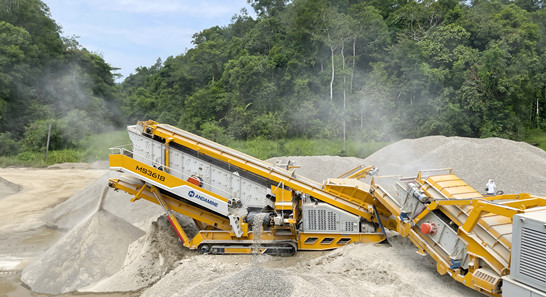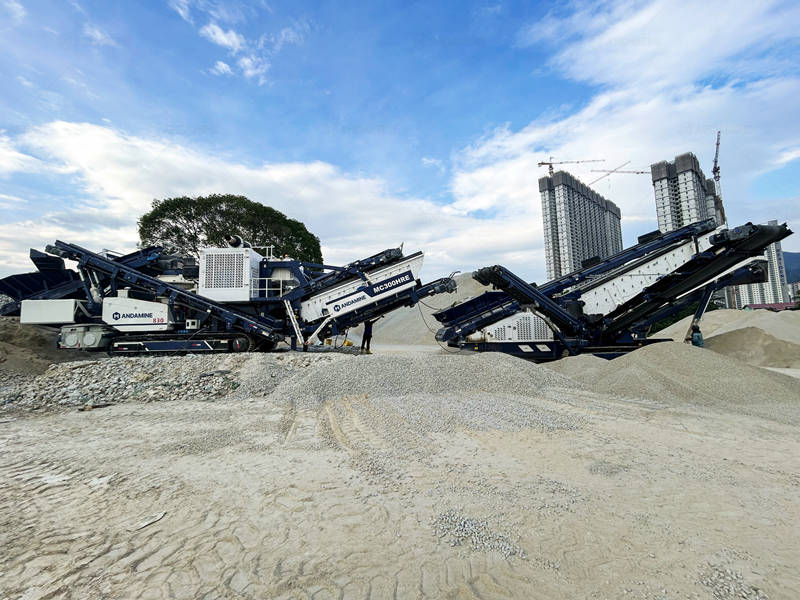Running a crushing operation requires much more than simply purchasing equipment and using it day after day. Whether you are operating in mining, quarrying, or infrastructure development, the efficiency and reliability of your machinery determine how profitable the business becomes. In particular, a construction crusher fleet that includes mobile units, fixed installations, and specialized models like jaw cone crusher combinations must be carefully maintained to avoid costly downtime. One of the best approaches to keeping expenses under control is to focus on mobile crushing plant maintenance, as mobile equipment is increasingly used in modern projects due to its flexibility. At the same time, entrepreneurs and project managers must also pay close attention to the mobile impact crusher price and how maintenance planning can directly impact the long-term cost-effectiveness of such investments.

Why Mobile Crushing Plant Maintenance Matters
Unlike stationary systems, mobile crushers are constantly exposed to challenging conditions, whether operating on rough terrains or handling a mix of abrasive materials. This constant movement and exposure put significant stress on components like conveyor belts, engines, hoppers, and screening systems. Without proper mobile crushing plant maintenance, unexpected breakdowns are almost inevitable, leading to halted production and significant financial losses.
For a construction business, downtime can be disastrous because projects often run on tight schedules. Delays in aggregate supply can halt roadwork, slow down building foundations, and even incur penalties from project owners. Preventive maintenance ensures that a construction crusher not only operates efficiently but also achieves its expected service life, protecting your investment in expensive machinery.
Balancing Equipment Costs and Mobile Impact Crusher Price
When buying equipment, many contractors tend to focus on upfront cost, such as comparing the mobile impact crusher price offered by different suppliers. While price is important, what matters more is the total cost of ownership over the equipment’s lifecycle. A slightly higher-priced machine with stronger durability and better support may end up being cheaper in the long run than a lower-priced alternative that requires frequent repairs.
Effective mobile crushing plant maintenance plays a central role in this balance. By following proper care routines, operators can keep their mobile impact crushers and other mobile units running at peak performance, thereby protecting their initial investment. For example, a well-maintained mobile impact crusher will not only have a longer life but will also deliver consistent output, ensuring that the material is crushed to the required specifications. Over time, this translates into better profitability for your stone crusher plant business or construction company.
Planning Maintenance for Jaw Cone Crusher Units
For contractors who rely heavily on jaw cone crusher combinations in their mobile plants, maintenance planning must be even more detailed. Jaw crushers handle the initial breaking of large rocks and are exposed to high levels of wear at the crushing jaws. Cone crushers, on the other hand, handle secondary and tertiary crushing, where liners and mantles wear down due to repeated pressure. If these wear parts are not inspected and replaced on schedule, performance will drop, and damage to surrounding parts could multiply repair costs.
A strong maintenance plan should therefore include:
1. Daily inspections – Operators should check lubrication levels, look for unusual vibrations, and inspect belts and hydraulic systems.
2. Scheduled part replacements – Jaw plates, cone liners, and bearings should be replaced based on manufacturer-recommended intervals to avoid catastrophic failure.
3. Documentation and monitoring – Keeping a log of maintenance activities helps track patterns and anticipate when specific issues might arise.
By being proactive, contractors save money on spare parts and avoid the much higher cost of emergency repairs.

Preventive vs. Reactive Maintenance
One mistake some companies make is relying on reactive maintenance, meaning repairs are only made after something breaks down. While this might seem cost-saving in the short term, it often results in expensive downtime, higher labor costs, and emergency replacement expenses. In contrast, preventive mobile crushing plant maintenance reduces overall expenses by addressing small issues before they become big problems.
For example, replacing worn-out conveyor belts on schedule might cost a few hundred dollars, but if the belt fails unexpectedly, production could halt for hours or even days, costing thousands in lost productivity. For a construction crusher operating on a large-scale project, such delays can also damage reputation and reduce client trust.
The Role of Training and Skilled Operators
Planning for effective maintenance isn’t only about parts and schedules—it also requires skilled personnel. Operators who are properly trained in handling jaw cone crusher systems and mobile units are more likely to detect early signs of issues such as unusual noises, overheating, or decreased output. Furthermore, trained operators are less likely to misuse equipment, which can reduce the frequency of maintenance requirements.
Some companies invest in training programs provided by equipment suppliers. These sessions not only cover how to use the machines but also emphasize routine mobile crushing plant maintenance tasks that can extend the equipment’s lifespan. The cost of training is small compared to the savings from reduced breakdowns and longer-lasting machinery.
Leveraging Technology for Predictive Maintenance
Modern equipment often comes with built-in sensors and monitoring systems. These tools allow contractors to shift from preventive to predictive maintenance. Predictive maintenance relies on real-time data such as vibration analysis, oil temperature, and fuel consumption to determine when components are likely to fail. By analyzing this data, managers can schedule interventions at the optimal time, reducing both unnecessary part replacements and unexpected breakdowns.
For example, predictive systems on a mobile impact crusher can alert operators when the rotor balance is off, signaling that wear parts need attention. Addressing this immediately avoids rotor damage, which could otherwise be extremely costly.
Cost-Saving Benefits of Planned Maintenance
The biggest advantage of a well-organized maintenance program is cost savings across the board. Here’s how:
1. Reduced downtime – Planned maintenance minimizes unexpected breakdowns, keeping the construction crusher fleet operational when projects need them most.
2. Lower repair expenses – Addressing small issues early prevents them from escalating into major repairs.
3. Extended equipment life – Proper care ensures machines like jaw cone crusher units and mobile impact crushers operate for their full expected lifespan.
4. Better resale value – A well-maintained machine commands a higher resale price, lowering the effective mobile impact crusher price over time.
5. Improved efficiency – Well-maintained equipment consumes less fuel and delivers consistent output, which translates into lower per-ton crushing costs.
Conclusion
For any contractor or entrepreneur managing a stone crusher plant business, the path to saving money lies not only in choosing the right equipment but also in ensuring that machines are maintained properly throughout their service life. While factors like the mobile impact crusher price or the efficiency of a jaw cone crusher are important, they only represent part of the cost equation. By investing in structured mobile crushing plant maintenance, construction companies can reduce overall expenses, increase productivity, and improve project outcomes. In today’s competitive environment, preventive and predictive maintenance is not an optional luxury—it is a fundamental strategy to ensure profitability and sustainability in the stone crushing industry.
